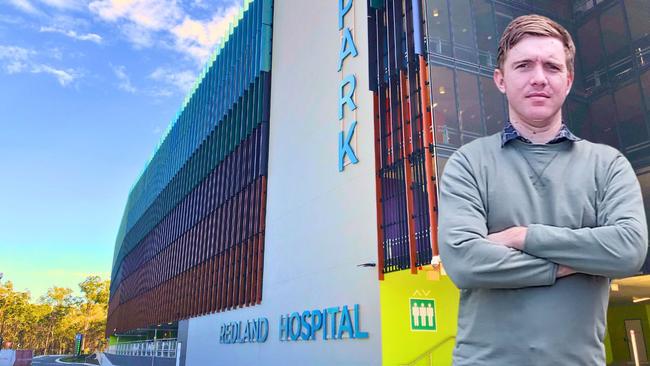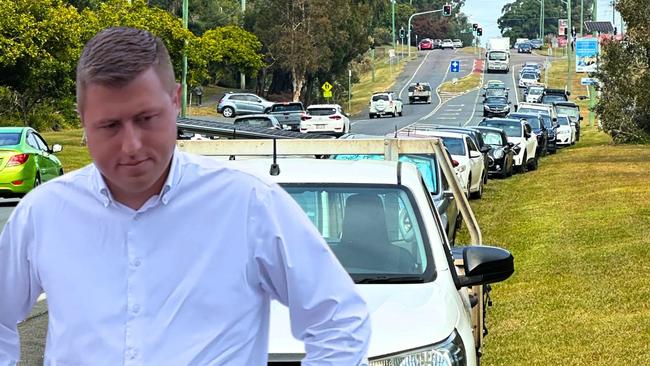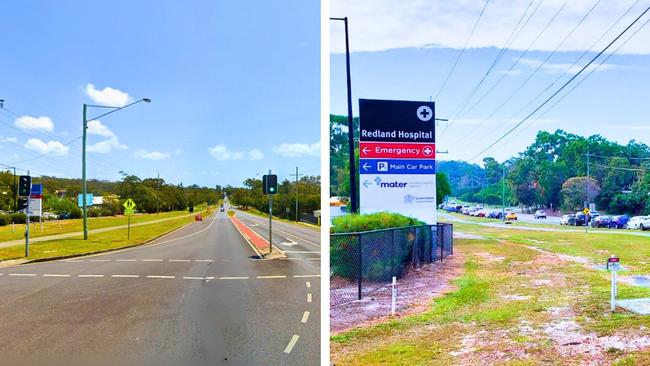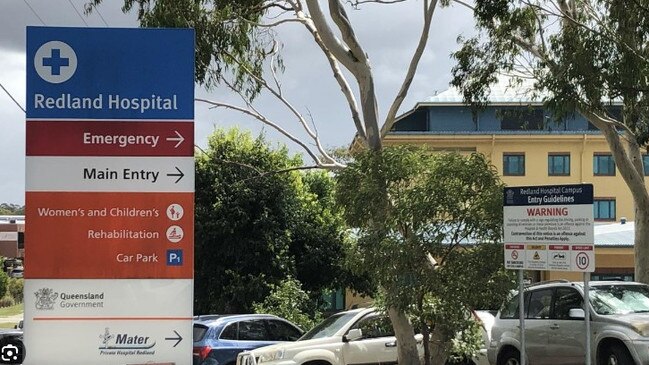Federal MP calls for free parking at Redland Hospital and revenue details of $51m car park
A $51 million car park at a bayside hospital has been criticised as a ‘cash cow failure’ prompting calls to reinstate free parking and to reveal how much it makes in revenue.

Redlands Coast
Don't miss out on the headlines from Redlands Coast. Followed categories will be added to My News.
A $51 million car park, built to ease parking woes at a busy bayside hospital, has been labelled a “cash cow failure” and has prompted calls for the state to reveal how much it makes in revenue and pleas to reinstate free parking at the site.
Federal MP for Bowman Henry Pike has criticised the state government for wasting money on the seven-storey car park at Redland Hospital in Cleveland.
Mr Pike spoke out after a 45-year-old man was injured last month in a crash on a nearby street where staff have taken to parking to avoid the fees.
He also called on the state to reveal how much money it was making from the car park after last month’s state budget failed to give the revenue details.
The taxpayer-funded car park was built using $16 million from the federal government and a $34.6 million state injection.

Mr Pike said the state had wasted money building the state-of-the-art facility, complete with solar panels and end-of-trip amenities, at the expense of a much-needed ICU ward and upgrading the emergency department.
“The multistorey car park is empty most of the time apart from some hospital vehicles permanently parked on the top level,” he said.
“It is actually creating parking problems, not solving them, and all while raising revenue for the state by charging taxpayers who have already paid to build the car park.”
Angry Redland residents and hospital staff said the carparking fees, which range from $3 an hour up to $13 for six hours, were forcing people to park on the nearby roads, causing traffic chaos and safety issues.
A staff discount allows hospital employees to park in the facility for $7.95 a day.
Resident Callen Sorensen-Karklis said he often battled to find a spot on Wellington or Weippin streets and believed cars parked on the footpath outside the hospital were creating traffic hazards.

Mr Sorensen-Karklis took his grievances about the parking fees online and started a petition calling on the state government to reinstate free parking across the site.
He said the carparking was part of a broader issue affecting hospital infrastructure funding after repeated delays of promised upgrades, including for an ICU and expanded emergency department.
“It’s ironic that the extremely expensive car park that was supposed to be alleviating congestion is actually creating it,” he said.
“But what is more concerning is that staff are paying to park at work, and that massive amount of money could have been spent on upgrading the emergency department.”
Last month’s state budget failed to reveal how much revenue the car park had generated. Health department officials said all entry fees go to the state government to be reinvested in hospital improvements, without giving specifics.
Officials said congestion on local roads from hospital traffic was a matter for Redland City Council and that parking fees were set by the state with a focus on fairness and affordability, with discounts available for staff as well as eligible patients and their carers.

“The car park is owned and operated by Redland Hospital and all parking fees collected have offset the cost of the car park, operations, maintenance, and ongoing improvements,” a health official said.
“In 2023, we opened the multi-level car park to make it easier for patients, visitors, and staff to find a car park.
“This ensures Redland Hospital funds remain dedicated to patient care and community health services. The hospital has not profited from the car park and the tariffs were kept as low as possible.”
Metro South Health officials engaged with Redland council during planning for the multi-level car park project to develop a traffic management plan.
The hospital has been a hive of activity this year, with the Stage 1 Expansion underway and practical completion expected in early to mid-2025.
Once complete, the project will deliver 37 new beds in a new inpatient ward and an Intensive Care Unit.
Detailed planning is also underway on a $150 million mental health facility.





